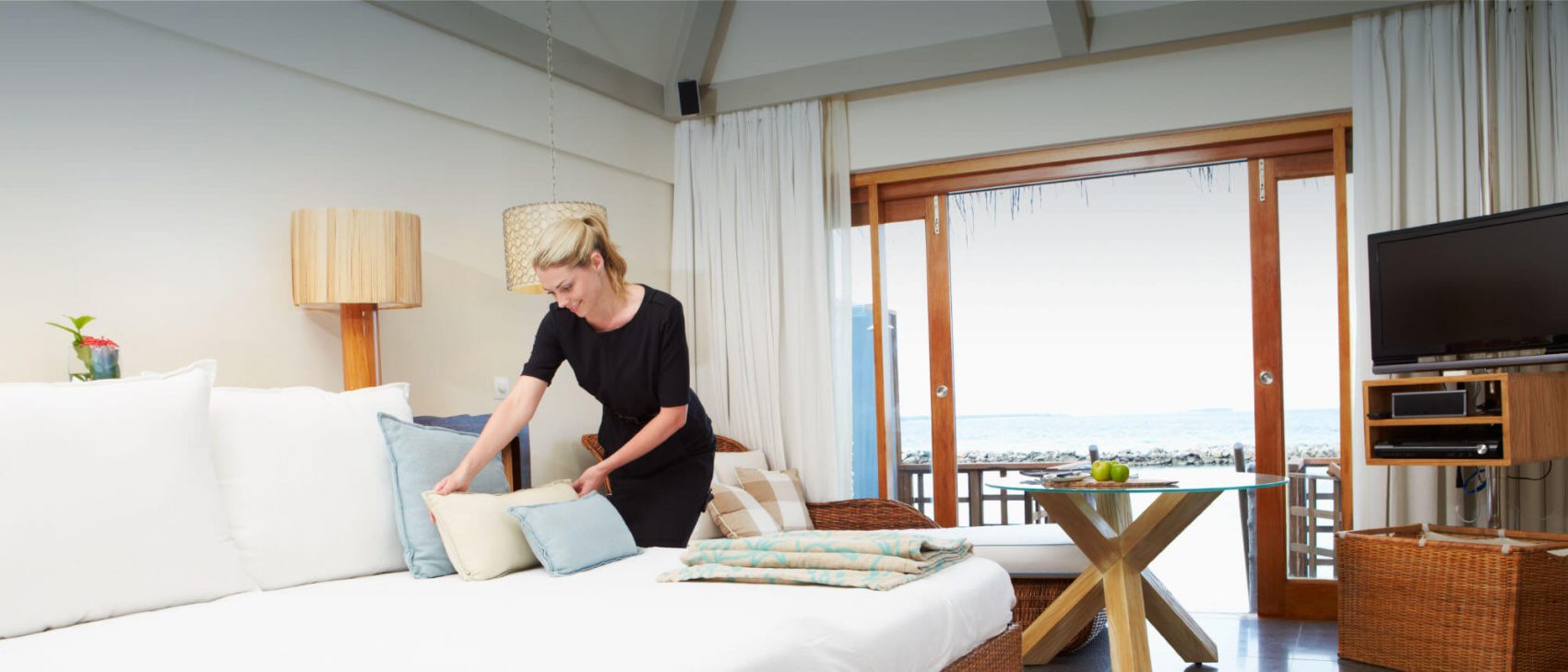There is a lot of content online, publications from hotelier and vacation-rental companies, telling you why you NEED to be using their channel manager. This guide will be a resource for someone wanting to understand the competitive advantages and disadvantages of using a channel manager. With any third-party booking company, a host should always look beyond the feature set, and ask themselves “How is this going to affect my hosting experience?”
You should already be familiar with “What exactly is a Channel Manager”. It will outline some of the crucial differences between channel managers. For this entry, I’m, going to use Lodgable as a benchmark.
I’ve had experience managing a vacation rental, with and without Lodgable. In regard to other channel managers, I definitely believe Lodgable is a superior platform. So, in the interest of making the most comprehensive comparison, benchmarking Lodgable against > ‘not using a channel manager’, should help illustrate how your hosting operation and experience, would really differ (it’s much more than just an addition of features).
Channel Manager Advantages
-
- Cloud-based calendar synchronicity between channels (severely reduces the chance of a double-booking)
-
- Increase overall reservations, maintain a higher occupancy rate through more visibility
-
- Save time by avoiding the setup of each listing in each individual channel. Channel managers will duplicate and update the data input (ie: property descriptions, photos), into all the hosted extranets. It updates across all listings, synonymously
-
- Your own booking engine (Lodgable offers an integrated website, allowing a guest to create a reservation with you directly)
-
- A partner that delegates the tricky interpersonal relationship between you and the booking site. Channel managers usually work directly with OTA representatives. They essentially welcome you into their hosting network and can be a useful liaison.
- Speedier activations – You skip the vetting process for each OTA
Channel Manager Disadvantages
-
- Reviews stay within the channel that the booking is received from (no crossover)
-
- Guest communication is usually done through the channels provided inbox address (ie: [email protected]). You might have to copy and paste these addresses within your email to respond to guests unless your browser is configured appropriately to open emails in your desired portal (PC generally defaults to Outlook)
-
- Creating your own listing within the respective channel will yield a slightly more optimized listing, you’ll sacrifice some customization for more visibility
- The categorized/searched amenities will not be perfect (ie: ‘cinema’ might display as ‘theatre’, or ‘gym’ might look like ‘fitness center’) – This is referred to as “mapping”
What’s it like actually using Lodgable?
Once a property becomes activated, (assuming you’ve now got reservations) you’ll see a dashboard looking like this:
Unlike a booking site, a channel manager needs to centralize reservation information, and show you the differences between the channels. Lodgable’s dashboard is basically a snapshot of where your reservations are coming from.
Scrolling through the tabs, you might first interpret the software to be ‘overly simplified’. This design was intentional. When Lodgable was in development, a lot of us felt that other channel managers had unnecessarily added levels of complexity, which made the setup/activation process relatively negative. So, we wanted to be different. We outlined only the most necessary data and configured it in such a way that any user could successfully input what they needed, and get a property activated quickly.
The ‘Properties’ tab contains all the properties and the respective data.
Hosts are familiarized quickly. Immediately they notice that each field contains basic property information, necessary for activations and is congruent with Lodgable’s ease of use. Specifically, calendaring availability, listed under “Rates & Availability”, synchronizes and updates instantaneously – just as if the host was creating managing the listing directly within an OTA. However, the other data fields can take 24 hours to update each channel. Channels will receive Lodgable server data in different intervals, there is a time buffer here.
To really understand the intricacies of using Lodgable, we encourage you to reach out to one of our representatives for a live demonstration of the use. This way, you can ask questions specific to your needs and hosting style to determine if it’s a good fit. Unlike other channel managers, Lodgable will not create situations where you’re tasked to activate listings in individual channels, we do that on your behalf.
Managing two or more listings without a channel manager
There aren’t many options available for managing multiple listings without a channel manager. Calendar availability is by far the most important element, and some larger channels like Airbnb and HomeAway allow you to import/export availability via iCal (digital file format).
Now, there are limitations. Only a handful of OTA’s use iCal and it’s only going to synchronize day availability. I’ve also had first-hand experience regarding iCal’s sync reliability, and I have mixed feelings. Any error I’ve experienced in iCal’s ability to sync quickly, (sometimes not at all) could only be resolved once I removed the import/export links, and re-inputted them. If I wasn’t consciously monitoring this, it could have resulted in a double booking.
Technically, you could use iCal to daisy chain calendar availability of many multiple OTA’s, but I’ve found that after two or three, it starts to become drastically difficult (especially if you manage more than one property). Some booking sites, Like Booking.com, actually encourage the use of a third-party channel manager.
Lodgable has iCal tools built into “Rates & Availability”, but we really don’t recommend synchronizing outside booking sites (as it defeats the whole purpose of using a channel manager).
Manually Updating
If you only have a single property, and just want to manually manage a couple of listings, this isn’t impossible. If you always have internet access and the ability to manage listings on-the-go, you could manually block/unblock calendars as reservations are completed or canceled within the channels. Doing this increases the risk of a double booking because of two reasons. First, we’re human and imperfect. We can forget things, and we can be slow to make changes. Second, we can submit changes, but with software and certain technicalities, it might not take our request. We could potentially lose network access – which further opens that window of double-bookings. Managing multiple listings, manually, usually equates to more work, and a heavier burden on the host to stay on top of their reservations and calendaring.]









